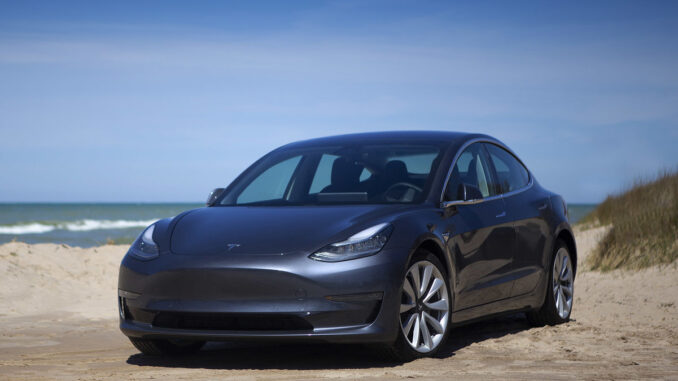
Thursday was a day of climate contradictions in California’s state capital.
First, state air regulators voted unanimously to phase out the sale of new gas-powered cars, passing a rule that will require automakers to electrify 35% of their new vehicle fleets by 2026, 68% by 2030 and 100% by 2035, CalMatters’ Nadia Lopez reports. Gov. Gavin Newsom, who had directed the California Air Resources Board to develop those regulations, called the move “groundbreaking and world-leading.”
Then, state lawmakers advanced a bill — just two days after it had been put into print — to accelerate cuts to California’s greenhouse gas emissions by requiring a 55% reduction to 1990 levels by 2030, instead of the existing goal of 40%. The bill is part of a five-pronged climate package that Newsom formally presented to lawmakers on Aug. 12, less than three weeks before the end of the legislative session next Wednesday. (His proposal to establish 3,200 setbacks between new oil and gas wells and sensitive areas went into printThursday.)
Yet, as numerous legislators pointed out during a hearing on the greenhouse gas bill, California is not on track to meet its current emissions reductions goals, according to a 2021 state auditor reportand numerous analyses conducted by the nonpartisan Legislative Analyst’s Office and independent experts.
Indeed, at a separate hearing happening simultaneously, state lawmakers considered Newsom’s last-ditch proposal to bolster California’s fragile electric grid — and keep residents’ lights on and electric vehicles powered — by giving PG&E a forgivable loan of as much as $1.4 billion to prolong the life of Diablo Canyon, the state’s last nuclear power plant.
The hearing underscored that Newsom is struggling to muster legislative support for extending Diablo Canyon’s lifespan, CalMatters environment reporters Rachel Becker and Nadia Lopez note. Not only are lawmakers circulating their own proposal that would instead funnel the $1.4 billion into renewable energy projects, but there’s also no clear indication that Newsom’s office and key legislators have reached a compromise or that a lawmaker has agreed to author the governor’s proposal.
The speed of the process has also sparked confusion and frustration: We “don’t understand all the aspects of this proposal because we received it at 10:08 p.m. last night,” said Mark Toney, executive director of The Utility Reform Network. “But we don’t believe anybody understands all of the consequences.”
State Sen. John Laird, a Monterey Democrat, added, “Why is this necessary to be done at this time with this level of rapidity?”
- State Sen. Brian Dahle, a Bieber Republican running for governorwho participated in both hearings, said during the one on greenhouse gas emissions cuts: “We are creating this crisis that we’re dealing with in the energy committee on the other floor, and I believe that this bill will do exactly the same thing. … We’ll have another crisis in a few years, because this is not going to work. … We haven’t achieved what we said we’re gonna achieve. That’s why we’re trying to keep Diablo open, because we don’t have the green renewable energy to support California right now.”
Perhaps one of the most interesting comments came from Democratic Assemblymember Bill Quirk of Fremont, the author of the bill to slash greenhouse gas emissions. Asked by Democratic state Sen. Bob Wieckowski, also of Fremont, how California would actually achieve the 55% reduction mandated by the bill, Quirk replied:
- Quirk: “Neither one of us will be here next year. You can lobby any senator, any assemblymember you want. We’re not going to be here, somebody else is going to figure this out.”



Be the first to comment